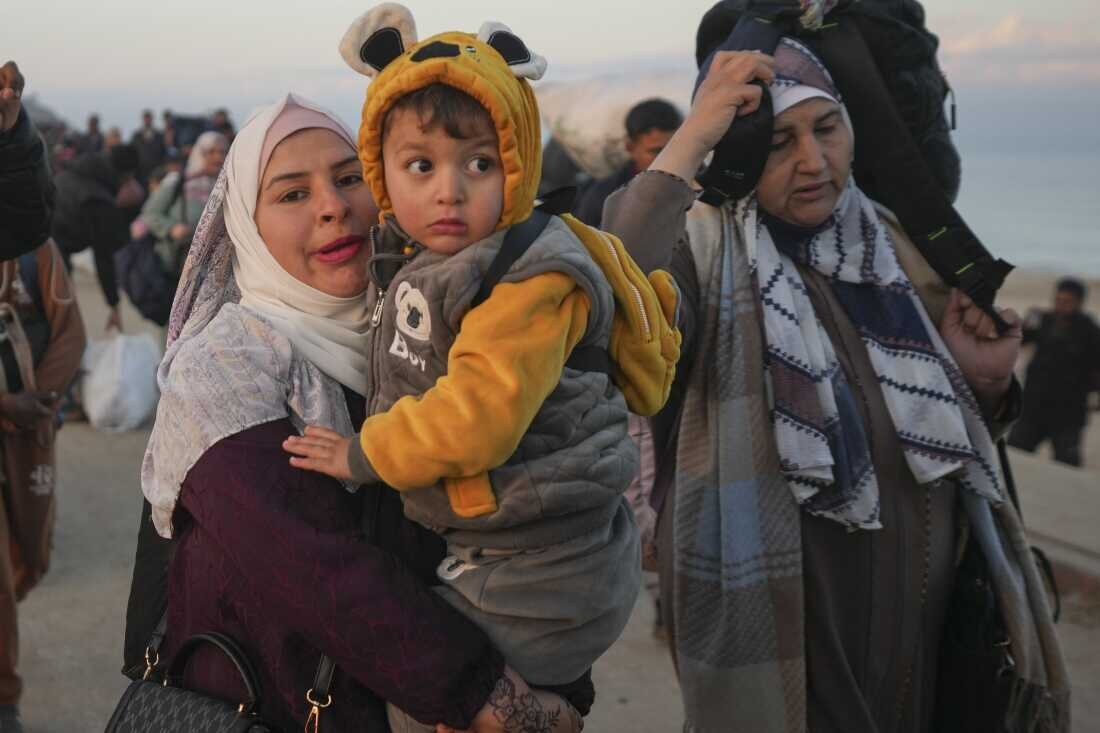US plan in Gaza: Complicity in crimes against humanity and genocide

TEHRAN - The crime of forced displacement, or the coerced expulsion of people from their homeland, is one of the most painful atrocities that humanity has endured throughout history and continues to face today.
This crime not only detaches individuals from their homeland and birthplace but also uproots everything that shapes their identity, leaving them in exile and forced refuge.
By committing this crime, the occupying Israeli regime aims to alter the demographic composition of the occupied region and erase the historical identity of its inhabitants.
Its objective is to sever the victims’ national, racial, ethnic, and religious ties. This goal is pursued through organized policies, including forced population displacement, the systematic destruction of residential areas, the spread of fear and terror, and the use of mass killings and violent acts to drive residents from their land.
Given the threat this crime poses to humanity and its blatant violation of human dignity, along with the inevitable consequences of mass displacement and forced migration to neighboring countries, the international community has responded with extensive legal measures within the framework of international law to combat it.
This is particularly emphasized in Article 49 of the Fourth Geneva Convention, which explicitly prohibits any forced individual or collective transfer, as well as the expulsion of inhabitants from occupied territories to the territory of the occupying power or any other country, regardless of the motives or justifications claimed by the occupying regime.
The severity of this crime is so extreme that it is recognized as one of the most serious offenses under international law.
Because it blatantly violates human rights and fundamental freedoms, this crime has been condemned in numerous treaties, resolutions, and international documents.
The Rome Statute of the International Criminal Court, in Articles 6 to 8, classifies this crime as genocide, war crimes, and crimes against humanity, ensuring that no state or occupying regime can ever consider committing it without facing severe legal consequences.
In this context, recent statements by the U.S. president regarding the cleansing of Gaza clearly reflect actions that align with crimes of genocide and crimes against humanity on a massive scale.
The catastrophic consequences of such acts not only threaten international peace and security but also deeply destabilize both regional and global stability.
These statements come at a time when, under the International Law Commission’s Draft Articles on State Responsibility, all states are obligated to prevent any war crime, crime against humanity, or genocide. This obligation is not just a right but a binding international duty.
Depriving Palestinians of living on their ancestral lands is part of the U.S. and Israeli regime’s efforts to erase Palestinian identity. Since the inception of the occupying regime, there has been a repeated desire for ethnic cleansing in Palestinian territories.
This effort intensified in the Israeli regime’s genocidal war in Gaza, where relentless military attacks, including destruction, bombings, terror tactics, blockades, and starvation, sought to force civilians in Gaza to leave their homes that had become uninhabitable.
More than 47,000 people in Gaza, mostly civilians, women, and children, were killed in these brutal attacks.
Seventy percent of Gaza’s vital infrastructure was destroyed, and nearly two million people were displaced.
Despite the shocking level of destruction, there are no signs that the resilient people of Gaza are abandoning their land. This undeniable truth reflects the unwavering determination of the Palestinian people to resist occupation and pursue their right to self-determination.
Since 1948, a large number of Palestinians have lived in exile and been forcibly removed from their homeland, with many remaining in overcrowded refugee camps. These camps are a testament to the suffering of the Palestinian people, turning displacement into their bitter destiny for decades.
History has shown that the crime of ethnic cleansing has only added to their suffering and exile, depriving them of any chance to return to their ancestral lands.
The recent U.S. plan is merely an attempt to erase Palestinian identity. If it is not decisively condemned by the international community, it will embolden the Israeli regime to continue its genocide and illegal occupation, rendering the Palestinians’ right to self-determination impossible.
This is a point emphasized by the International Court of Justice (ICJ) in its advisory opinion on July 19, 2024, where it explicitly obligated all states to cooperate in upholding the Palestinians’ right to self-determination and ending the Israeli occupation.
The U.S. plan for the forced relocation of Gaza’s population and control over this territory is a blatant threat to the entire international legal system.
Its implementation would inflict irreparable damage on the legitimacy and credibility of the international order and its institutions.
The Gaza Strip is recognized by the United Nations and the International Court of Justice as part of Palestinian territory, and any occupation of this land by another state or regime constitutes an act of aggression.
The normalization of this discourse is not only deeply troubling but also represents a blatant disregard for fundamental principles of international law, including Article 2(4) of the UN Charter. It must be met with a decisive response from the international community.
The only just path for the international community is to rely on the ICJ’s advisory opinions and many UN resolutions where the inalienable right of Palestinians to return to their ancestral lands is enshrined in international law.
The international community must also compel the Israeli regime to end its occupation and hold it accountable for its recent widespread crimes. All states are obligated to pursue this goal. Any deviation from these objectives would amount to aiding the ethnic cleansing of a nation and it carries international responsibility.
Abbas-Ali Kadkhodaei is an international law professor at the University of Tehran
Leave a Comment